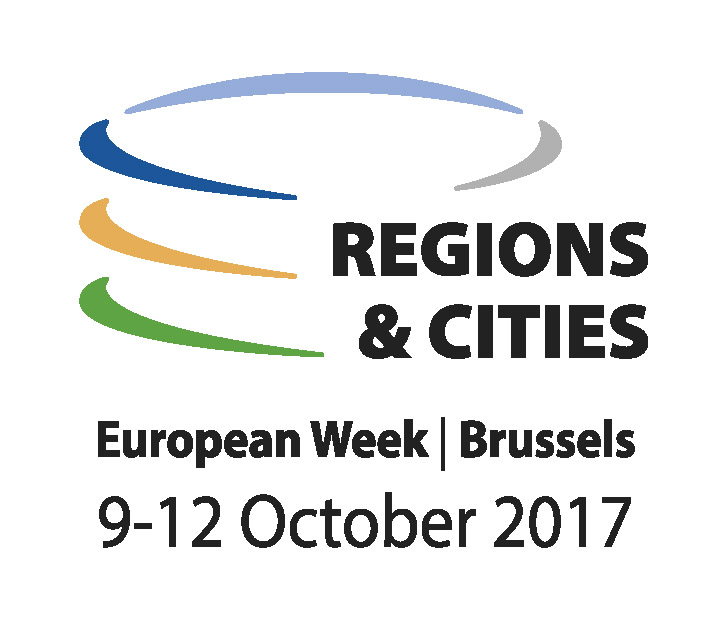Written by Christiaan Van Lierop,
 Celebrating its 15th anniversary this year, the European Week of Regions and Cities has grown to become Europe’s largest annual get-together of local and regional representatives, drawing several thousand participants from across Europe to four days of workshops and debate. As discussions get under way on the future of cohesion policy post 2020, this year’s event comes at a crucial time for regions and cities, providing them with a unique platform to put forward the local perspective and contribute to the debate on the future shape of cohesion policy. Under the banner of ‘Regions and cities working for a better future’, the 2017 European Week of Regions and Cities will focus on the following three themes: Building resilient regions and cities; regions and cities as change agents; sharing knowledge to deliver results. As in previous years, the European Parliamentary Research Service (EPRS) has prepared a compendium of briefings to tie in with some of this year’s main themes and will be present at a special information stand during the event.
Celebrating its 15th anniversary this year, the European Week of Regions and Cities has grown to become Europe’s largest annual get-together of local and regional representatives, drawing several thousand participants from across Europe to four days of workshops and debate. As discussions get under way on the future of cohesion policy post 2020, this year’s event comes at a crucial time for regions and cities, providing them with a unique platform to put forward the local perspective and contribute to the debate on the future shape of cohesion policy. Under the banner of ‘Regions and cities working for a better future’, the 2017 European Week of Regions and Cities will focus on the following three themes: Building resilient regions and cities; regions and cities as change agents; sharing knowledge to deliver results. As in previous years, the European Parliamentary Research Service (EPRS) has prepared a compendium of briefings to tie in with some of this year’s main themes and will be present at a special information stand during the event.
The first document in our compendium, Challenges for EU cohesion policy: Issues in the forthcoming post-2020 reform, considers the ten main issues for future reflection in the debate on the reform of cohesion policy post 2020, covering such topics as how cohesion policy can best contribute to competitiveness. Next up is Delivering the Urban Agenda for the EU, which examines the main building blocks of this process and discusses recent developments following the Pact of Amsterdam, as well as the links between this initiative and the UN’s new Urban Agenda. With the partnership principle lying at the heart of the EU’s cohesion policy, partnership within cohesion policy assesses the level of partner involvement in cohesion programming and considers how to improve partnerships in future, while our briefing on EU support for social entrepreneurs considers the funding and support available to social enterprises, which combine entrepreneurial activity and social goals. Discussing the factors that help drive regional competitiveness, regional Competitiveness in the EU examines the findings of the 2016 regional competitiveness index, and considers the role of cohesion policy in supporting regional competitiveness. A briefing on the implementation of macro-regional strategies follows, which evaluates the implementation of the EU’s four macro-regional strategies and examines the proposals put forward by stakeholders in the context of the discussions on the cohesion policy framework post-2020. Harnessing globalisation for local and regional authorities EFSI and ESI Funds, meanwhile, maps the impact of globalisation in EU regions, discusses the challenges of globalisation and considers a number of possible solutions to these challenges. With the European Fund for Strategic Investment a top priority for the Commission, EFSI and ESI Funds: Complementarity or contradiction examines this key investment plan, which is expected to raise an additional €315 billion in additional investment, and assesses the complex relationship between EFSI and the European Structural and Investment Funds. Our compendium is rounded off with a briefing on Financial instruments in cohesion policy, which discusses the increasing use of these investment support instruments, focusing in particular on the advantages and challenges relating to their implementation.
This year, the EPRS is also organising a workshop on research for policy-makers, in cooperation with the European Parliament Policy Department for Structural & Cohesion Policies, as part of the European Week of Regions and Cities annual masterclass on EU cohesion policy for students and early career researchers. The workshop will discuss how the European Parliament uses research on cohesion and regional policy in its work and in the policy-making process, giving students an opportunity to interact in person with experts from the European Parliament.
Read also the Topical Digest on ‘European Week of Regions and Cities‘.








Be the first to write a comment.